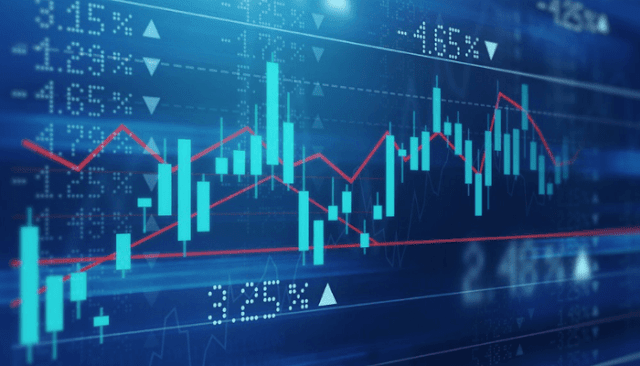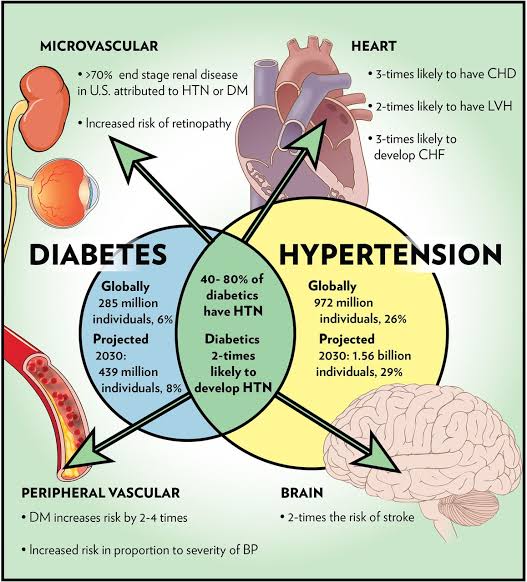The Nigerian stock market continued its bullish run on Tuesday, August 26, 2025, as investors poured capital into a select group of equities, boosting market capitalization by N203 billion. According to data from the Nigerian Exchange Limited (NGX), the market capitalization rose to N89.696 trillion from N89.493 trillion recorded on Monday, reflecting a 0.23 percent increase. The All-Share Index (ASI), a key barometer of market performance, advanced by 321.59 points, or 0.23 percent, to close at 141,761.36, up from 141,439.77 in the previous trading session. The rally, driven by strong performances from stocks such as NCR Nigeria, Berger Paints, and Beta Glass, underscores growing investor confidence in Nigeria’s capital market despite lingering economic challenges. However, a negative market breadth and a mixed performance among stocks highlight the complexities of the current trading environment. This article delves into the details of Tuesday’s market activity, the factors driving the gains, and the broader implications for Nigeria’s financial landscape.
A Bullish Session Fueled by Key Stocks
The Nigerian stock market’s upward trajectory on Tuesday was propelled by robust demand for a handful of high-performing equities, with 27 stocks recording gains. Leading the charge was NCR Nigeria, a technology solutions provider, which surged by 10 percent to close at N11.55 per share, cementing its position as the day’s top performer. The stock’s strong performance reflects growing investor interest in technology-driven companies, which are seen as critical to Nigeria’s digital transformation.
Following closely behind was Sky Shelter Fund, a real estate investment trust, which posted a 9.99 percent increase to close at N301.55 per share. The fund’s performance highlights the resilience of real estate as an asset class, even in a challenging economic environment. Berger Paints, a leading manufacturer in Nigeria’s industrial sector, also contributed significantly to the market’s gains, climbing 9.06 percent to N34.90 per share. The company’s strong showing underscores investor confidence in firms with solid fundamentals and a track record of delivering value.
Other notable gainers included Beta Glass, which rose 8.16 percent to N486 per share, and Cadbury Nigeria, a prominent player in the consumer goods sector, which advanced 8.04 percent to close at N62.50 per share. These gains were supported by a total of 23 other stocks that recorded positive price movements, reflecting a broad-based rally across multiple sectors, including technology, manufacturing, and consumer goods. The performance of these stocks demonstrates the market’s ability to generate wealth for investors, even amidst macroeconomic headwinds such as inflation and currency volatility.
A Mixed Market: Decliners Outnumber Gainers
Despite the overall upward movement in market indices, Tuesday’s session revealed a negative market breadth, with 34 stocks declining compared to 27 gainers. This divergence highlights the selective nature of investor interest, with some stocks facing significant selling pressure. Legend Internet led the losers’ chart, plummeting 10 percent to close at N5.40 per share. The sharp decline reflects challenges in the telecommunications sector, where high operational costs and competitive pressures have weighed on profitability.
Secure Electronic Technology, another technology-focused company, was among the notable losers, dropping 9.26 percent to 98 kobo per share. The decline in its share price may be linked to broader concerns about the sustainability of growth in Nigeria’s fintech sector, particularly in light of regulatory changes and fraud risks. Cutix, a manufacturer of electrical cables, shed 8.97 percent to close at N3.55 per share, while UAC of Nigeria, a diversified conglomerate, fell 8.69 percent to N73 per share. Deap Capital Management, a financial services firm, also recorded a significant loss, declining 8.29 percent to settle at N1.66 per share.
The negative market breadth suggests that while certain stocks attracted strong buying interest, others faced profit-taking or investor skepticism. This mixed performance underscores the volatility inherent in Nigeria’s stock market, where macroeconomic uncertainties and sector-specific challenges can create sharp disparities in stock performance.
Robust Trading Activity Signals Investor Confidence
Tuesday’s trading session was marked by a significant uptick in activity, with investors exchanging 605.02 million shares valued at N12.89 billion across 28,845 deals. This represents a notable increase from Monday’s figures, which saw 591.2 million shares worth N11.7 billion traded in 33,342 deals. The rise in trading volume and value, despite a slight decrease in the number of deals, indicates strong investor participation and a willingness to commit capital to the market.
FCMB Holdings emerged as the most actively traded stock, with 89.29 million shares worth N980.8 million changing hands. The banking group’s strong trading volume reflects its position as a key player in Nigeria’s financial services sector, with investors drawn to its diversified offerings and growth potential. Veritas Kapital followed, with 68.5 million shares valued at N154.2 million traded, underscoring the growing interest in insurance and financial services stocks.
AIICO Insurance, another insurance firm, recorded 36.15 million shares worth N152.5 million, while Secure Electronic Technology, despite its price decline, saw 27.3 million shares valued at N27.1 million traded. Mutual Benefits Assurance rounded out the top five, with 23.5 million shares worth N104.9 million exchanged. The high trading volumes in these stocks highlight the sectors—banking, insurance, and technology—that are currently capturing investor attention.
Economic Context: Navigating Challenges and Opportunities
The Nigerian stock market’s performance on Tuesday must be viewed in the context of the broader economic environment. Nigeria continues to grapple with significant macroeconomic challenges, including high inflation, currency depreciation, and elevated interest rates. The Central Bank of Nigeria (CBN) has implemented aggressive monetary tightening measures to curb inflation, which stood at over 30 percent in mid-2025, according to official data. These policies have increased borrowing costs for businesses, impacting corporate profitability and investor sentiment in some sectors.
At the same time, the CBN’s efforts to stabilize the naira and promote a cashless economy have driven interest in financial services and technology stocks, which are seen as key to Nigeria’s digital transformation. The recent directive from the CBN mandating the migration to the ISO 20022 messaging standard and geo-tagging of payment terminals by October 31, 2025, has further underscored the importance of technology in the financial sector. Companies like NCR Nigeria and Secure Electronic Technology, despite their divergent performances on Tuesday, are positioned to benefit from these regulatory changes, which aim to enhance transparency and reduce fraud in electronic payments.
The consumer goods sector, represented by stocks like Cadbury and Berger Paints, has also shown resilience, driven by steady demand for essential products and services. Nigeria’s growing population and expanding middle class continue to create opportunities for companies in this sector, even as inflationary pressures squeeze consumer spending. The real estate sector, as evidenced by Sky Shelter Fund’s strong performance, remains a bright spot, with investors seeking stable returns in an uncertain economic climate.
Sectoral Dynamics and Investor Sentiment
Tuesday’s market performance highlights the sectoral dynamics shaping investor sentiment. The technology sector, led by NCR Nigeria, is benefiting from Nigeria’s push toward digitalization and financial inclusion. The company’s 10 percent surge reflects optimism about its role in providing payment solutions and IT services, particularly as the CBN’s regulatory reforms drive demand for advanced technology infrastructure.
The consumer goods and manufacturing sectors, represented by Cadbury and Berger Paints, are also attracting investor interest due to their defensive qualities. These companies produce essential goods that maintain demand even in tough economic conditions, making them attractive to risk-averse investors. Beta Glass’s 8.16 percent gain further underscores the strength of Nigeria’s industrial sector, which continues to benefit from infrastructure development and domestic manufacturing initiatives.
On the other hand, the declines in stocks like Legend Internet and Secure Electronic Technology point to challenges in the telecommunications and fintech sectors. High operational costs, regulatory scrutiny, and competition from global players have created headwinds for these companies, leading to profit-taking and share price corrections. Similarly, the losses recorded by UAC of Nigeria and Deap Capital Management suggest that investors are taking a cautious approach to conglomerates and smaller financial services firms, which may be more vulnerable to economic volatility.
The Broader Market Outlook
The Nigerian stock market’s performance on Tuesday is part of a broader upward trend that has characterized much of 2025. The NGX All-Share Index has risen steadily throughout the year, driven by investor optimism about Nigeria’s long-term growth prospects and the resilience of key sectors. The market’s ability to add N203 billion in a single session underscores its potential to generate wealth, even in a challenging economic environment.
However, risks remain. The CBN’s monetary tightening policies, while necessary to combat inflation, could dampen corporate earnings and slow economic growth in the short term. Currency volatility, driven by Nigeria’s reliance on oil exports and foreign exchange constraints, continues to pose a challenge for businesses and investors. Additionally, geopolitical uncertainties and domestic security concerns could impact investor confidence if not addressed.
Despite these challenges, the Nigerian stock market offers significant opportunities for investors. The NGX’s diverse range of listed companies, spanning banking, consumer goods, technology, and industrial sectors, provides ample options for portfolio diversification. The market’s strong trading volumes and liquidity, as evidenced by Tuesday’s activity, make it an attractive destination for both domestic and foreign investors.
Implications for Investors and Policymakers
For investors, Tuesday’s market performance highlights the importance of selective stock picking in a volatile environment. While stocks like NCR Nigeria and Berger Paints offer growth potential, the declines in stocks like Legend Internet and Cutix underscore the need for thorough research and risk management. Investors will need to closely monitor macroeconomic indicators, such as inflation and interest rates, as well as sector-specific developments, to make informed decisions.
For policymakers, the stock market’s resilience is a positive sign, but it also underscores the need for continued reforms to support economic stability. The CBN’s efforts to modernize the payment system and promote financial inclusion are critical steps, but broader measures to address inflation, improve infrastructure, and enhance security will be essential to sustaining investor confidence. The government’s Nigeria Agenda 2050, which aims to position the country as a leading African economy, will depend on a vibrant capital market to mobilize resources and drive growth.
Looking Ahead: A Market Poised for Growth
As Nigeria approaches the final quarter of 2025, the stock market’s performance on Tuesday offers a glimpse of its potential to drive wealth creation and economic development. The N203 billion gain in market capitalization, coupled with strong trading activity, reflects the vibrancy of the NGX and the confidence of investors in Nigeria’s future. However, the negative market breadth and declines in several stocks serve as a reminder of the challenges that lie ahead.
The performance of stocks like NCR Nigeria, Berger Paints, and Beta Glass highlights the opportunities in Nigeria’s technology, consumer goods, and industrial sectors, while the losses in stocks like Legend Internet and Secure Electronic Technology underscore the need for resilience in a competitive and volatile market. As investors and policymakers navigate this complex landscape, the Nigerian stock market remains a critical engine of growth, offering a platform for wealth creation and economic transformation in one of Africa’s most dynamic economies.
With the CBN’s regulatory reforms set to reshape the financial sector and investor sentiment remaining cautiously optimistic, the NGX is well-positioned to continue its upward trajectory. Whether this momentum can be sustained will depend on the interplay of economic policies, corporate performance, and global market dynamics. For now, Tuesday’s rally is a testament to the resilience and potential of Nigeria’s capital market, even in the face of significant challenges.







